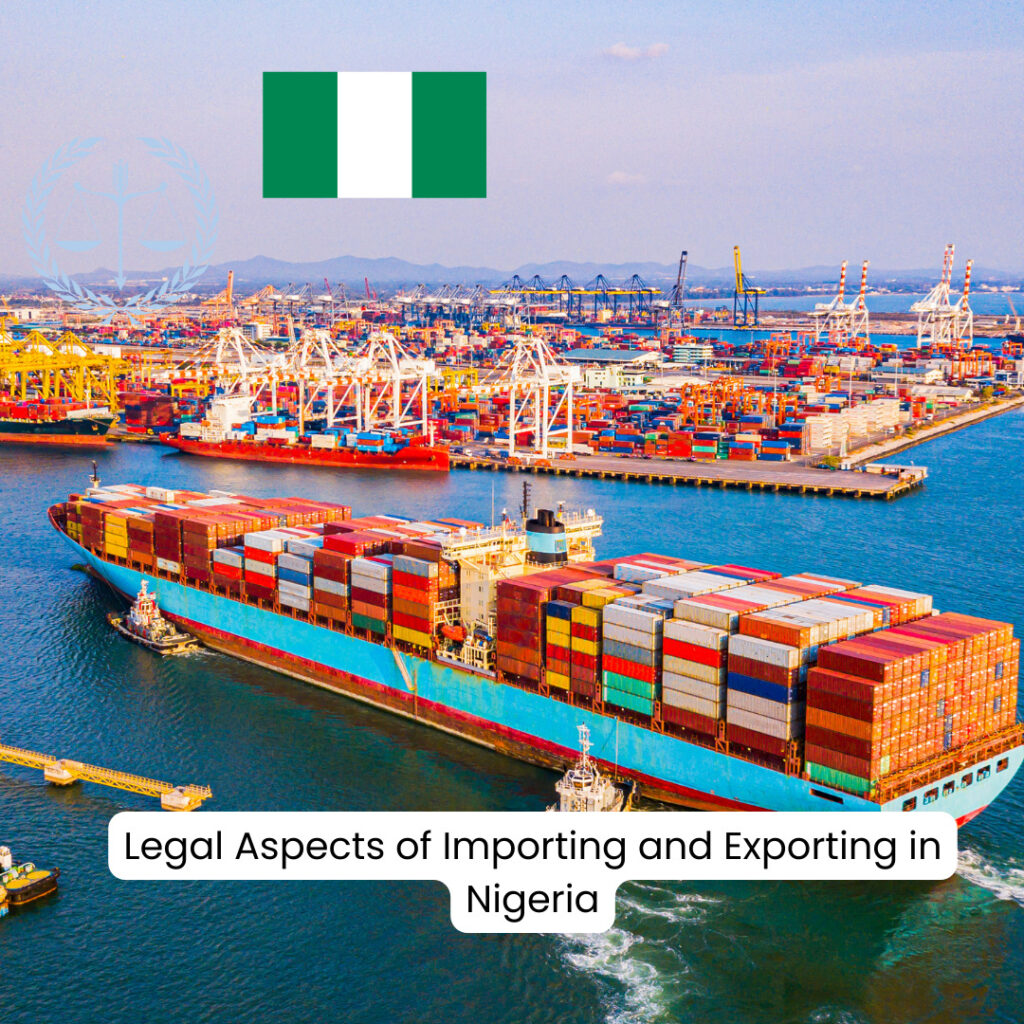Legal Aspects of Importing and Exporting in Nigeria
As a vibrant and diverse economy, Nigeria engages in extensive international trade, both in terms of imports and exports. The import and export of goods play a crucial role in the country’s economic growth, job creation, and global competitiveness. However, engaging in international trade requires a comprehensive understanding of the legal aspects involved to ensure compliance with regulations and facilitate smooth cross-border transactions. This article explores the legal framework and key considerations for importing and exporting goods in Nigeria.

Importing Goods: Legal Considerations
- Customs Regulations: Importers must adhere to the customs regulations and procedures outlined by the Nigerian Customs Service (NCS). This includes accurate declaration of goods, valuation, and payment of appropriate duties and taxes.
- Import Duty: Importers are subject to import duties, which vary depending on the classification of goods and the applicable rates.
- Import Licensing: Certain goods may require import licenses or permits from relevant regulatory authorities to ensure compliance with health, safety, and quality standards.
- Product Standards and Certification: Imported goods must meet Nigerian standards and may require certification from relevant bodies to ensure product quality and safety.
- Prohibited and Restricted Goods: Importation of certain goods is prohibited or restricted due to health, safety, environmental, or regulatory concerns. Importers must be aware of these restrictions to avoid legal issues.
Exporting Goods: Legal Considerations
- Export Documentation: Exporters must provide accurate and complete documentation to facilitate customs clearance and ensure compliance with export regulations.
- Export Licensing: Some goods may require export licenses or permits from regulatory authorities to control the outflow of certain products.
- Export Duty and Levies: Certain goods may be subject to export duties or levies, which contribute to government revenue and promote balanced trade.
- Trade Agreements: Nigeria is a party to various international trade agreements that impact export processes. Exporters should be aware of preferential trade agreements and tariff preferences.
- Sanctions and Embargoes: Exporters must comply with international sanctions and embargoes imposed by global bodies to ensure legal and ethical trade practices.
- Product Documentation and Compliance: Exporters should ensure that exported goods adhere to quality, safety, and labeling standards set by destination countries.
Customs Clearance and Documentation
Both importers and exporters need to be well-versed in customs clearance procedures and documentation requirements. Some key documents include:
- Bill of Lading: Evidence of contract for shipping goods and receipt of cargo by the carrier.
- Commercial Invoice: Contains details of the transaction, including price, quantity, and description of goods.
- Certificate of Origin: Specifies the origin of goods and may impact customs duties.
- Packing List: Lists details of the goods, including weight, dimensions, and packaging materials.
- Export Declaration Form (EDF): Required for exporting goods and contains key information about the shipment.
- Import Declaration Form (IDF): Required for importing goods and provides details for customs valuation and duty assessment.
Conclusion
Engaging in international trade requires a firm grasp of the legal aspects of importing and exporting in Nigeria. Compliance with customs regulations, import duties, export licenses, and documentation requirements is crucial to facilitate smooth and lawful cross-border transactions. Businesses involved in international trade should collaborate with legal experts, customs agents, and trade consultants to navigate the complex legal landscape, ensuring that their import and export activities contribute to economic growth while adhering to legal and regulatory standards.
